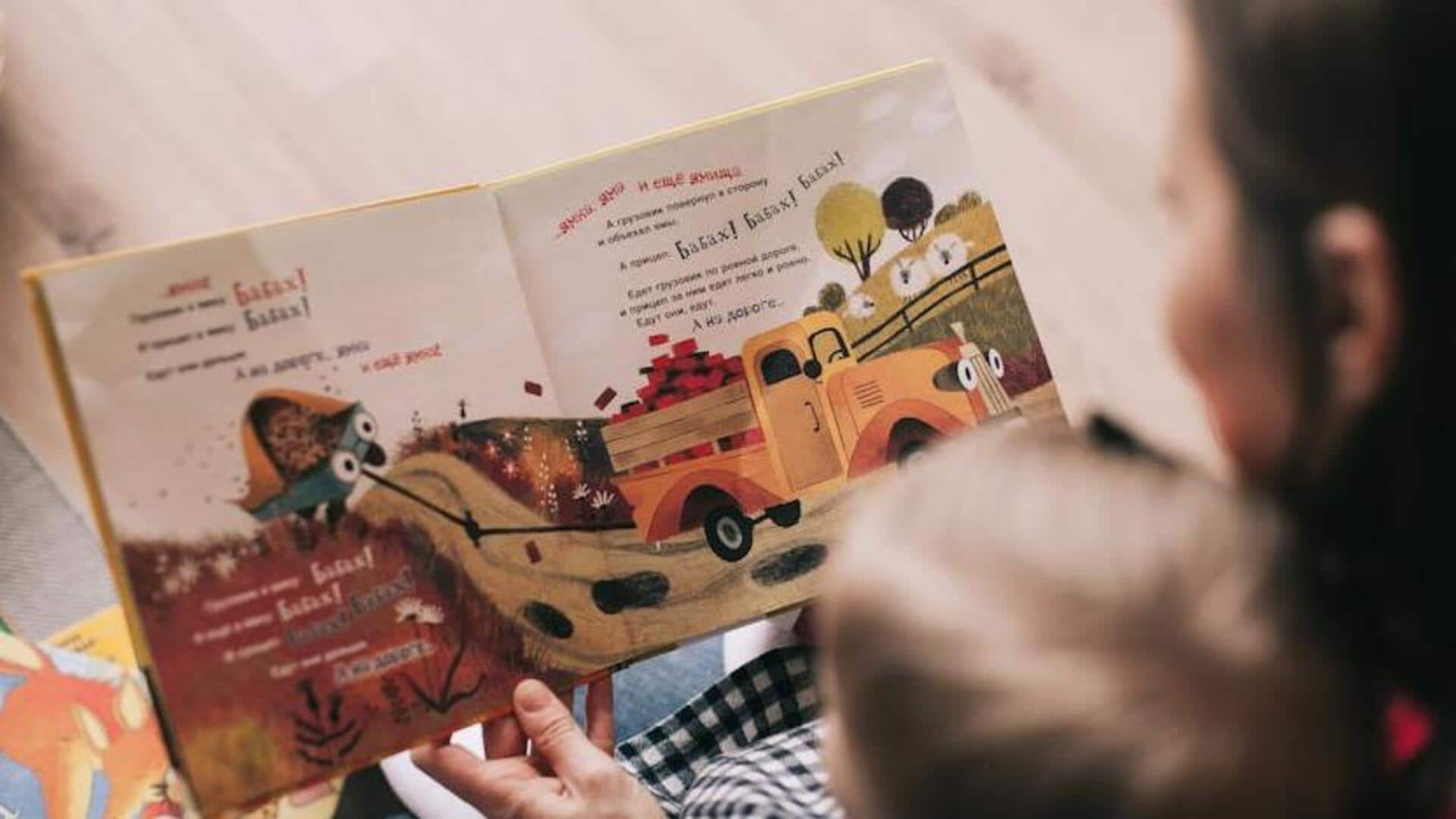
5 benefits of storytelling for children
What's the story
Storytelling is a powerful tool that can significantly enhance a child's imagination. By engaging with stories, children are exposed to new worlds, characters, and scenarios that stimulate their creative thinking. This article explores five key benefits of storytelling in fostering children's imagination. Each section highlights how storytelling can contribute to a child's cognitive and emotional development, encouraging them to think creatively and explore possibilities beyond their immediate environment.
Creative spark
Enhances creative thinking
Further, storytelling also encourages children to think outside the box by presenting them with diverse narratives and characters. As they listen/read stories, they learn to visualize scenes, and imagine different outcomes. This, in turn, helps develop their ability to generate new ideas and solutions in different situations.
Emotional growth
Develops empathy
Storytelling opens a whole new world of perspectives and emotions for children through the characters' experiences. This way, they are able to relate to and experience joy, sadness, anger, or fear from someone else's eyes. As a result, they become more empathetic towards others in the real world. This is essential for their emotional growth and socialization, and helps them understand the world around them better.
Linguistic development
Improves language skills
Listening to stories enhances vocabulary as kids encounter new words in narrative contexts. This exposure familiarizes them with different terms, improving their grasp of language. Further, storytelling enhances comprehension as it involves understanding plot structures and character developments. This not only enriches their vocabulary but also makes their comprehension skills deeper, critical for linguistic proficiency.
Cognitive boost
Strengthens memory retention
Regularly listening to stories, be it through read aloud sessions at home or school activities, greatly improves children's memory retention capacities. This happens as kids have to remember complex details about the plots and characters, which promotes an active mental involvement in every storytelling session. Not only does this entertain them, but also sharpens their cognitive skills by promoting a closer engagement with the content presented.
Analytical thinking
Encourages problem-solving abilities
In the world of storytelling, protagonists are faced with dilemmas that need thoughtful resolutions, thus nurturing analytical thinking in young audience. As kids follow them, they are encouraged to think of different outcomes and how to get there along with the story. This not just keeps them invested in the tale but also hones their problem-solving skills by making them think about challenges characters face and how they overcome it.